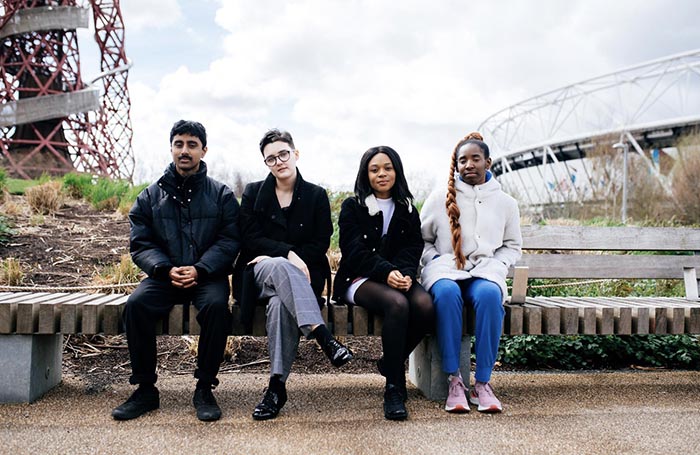Coronavirus has served as a reminder that we must design places that are healthy for residents and that support and represent communities well. 'Place' has a significant role to play in the development of community well-being and prosperity – it is where architectural practice meets philanthropic aspiration. But how can progressive placemaking be developed and implemented?
This post, part of a series published for the Future Place programme in response to the global coronavirus pandemic, discusses the relationship between architecture, philanthropy and placemaking, and explores strategies for how to promote community well-being and resilience in a post-COVID world.
Two disciplines working together in parallel
Architecture, like philanthropy, has the potential to play a fundamental role in radical and Both disciplines enable progressive shifts towards inclusive social, economic and environmental value: from high-quality social housing to public parks and buildings where people can gather, be entertained and provoked by culture.
The is a grantmaker and fundraiser committed to delivering inclusive architecture, public realm, and cultural spaces as part of an evolving story of east London and the London Olympic 2012 Legacy. Since it was established in 2015, the foundation's philanthropic role has been an integral part of the planning of – the new cultural hub soon to arrive at the heart of the Queen Elizabeth Olympic Park.

Investing in local communities
For the foundation, investment in east London includes investing in 'support ladders' for career and business opportunities in urban design and architecture. The development of skills – soft as well as hard – is critical for communities, and the focus on professions related to placemaking is not coincidental.
Indeed, philanthropists are increasingly looking at place-led approaches that can provide broader economic and social value at a local and national level. Along with other philanthropic bodies, socially aware architects and , the Foundation for Future London is using placemaking and strong diversity principles to leverage economic, social and environmental impacts – and more organisations are following suit.
For example, Enni-Kukka Tuomala – co-funded by Foundation for Future London and City of London – has used her architectural and arts background to set up , the world’s first dedicated space for empathy, community and creativity.

An emerging coalition for place-based approaches
There is currently a focus on developing place-led approaches to funding by bodies such as and . Why? Because as a society, the places we provide for people to live in is a measure of our respect for human rights, fair economics and the environment. It is no coincidence that the United Nations Sustainable Development aims specifically to "make cities inclusive, safe, resilient and sustainable".
Now is the time to accelerate these efforts. Philanthropists and architects must step up and invest in placemaking, share the learning and ask challenging questions about how partnerships are collaboratively created to meet this goal for current and future generations.
As a grantmaker and fundraiser, the Foundation for Future London is keen to work in partnerships providing architecture, public realm and creative placemaking opportunities for people at various stages in their life and careers, supporting scholarships, mentoring and co-working of architects, planners and landscape designers.
This approach can play a vital role in helping to ensure that a resilient recovery from COVID-19 happens. Now more than ever, placemaking, philanthropy and architecture can help nurture a genuinely resilient response to .
About the author
Maria Adebowale-Schwarte is the of the and an affiliate member of ����������. She has over 25 years’ cross-sector experience in environment, heritage, human rights and urban placemaking. Her book, ‘The Place Making Factor’, explores the role of philanthropy in unlocking siloed approaches to funding. The foundation works with UK and global partners, philanthropists and funding foundations to create inclusive opportunities for local communities in Hackney, Newham, Tower Hamlets and Waltham Forest.
In celebration of National Inclusion Week, the ���������� is hosting the Inclusion by Design Festival. Taking place from 28 September to 2 October 2020, the festival is part of a programme of action to develop and support equity and inclusion within the ����������, architecture profession and the wider built environment.



